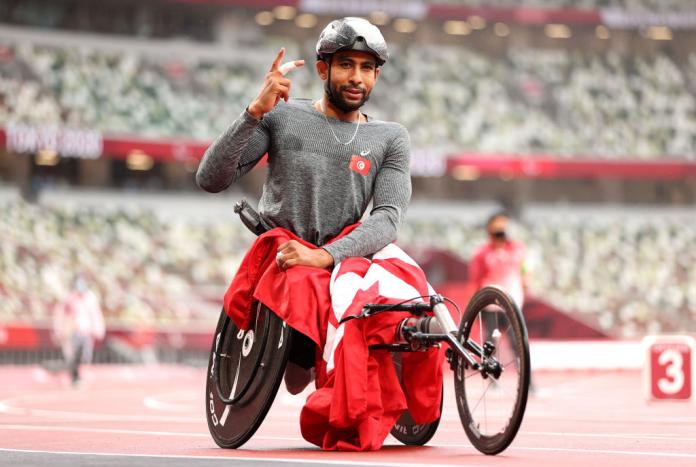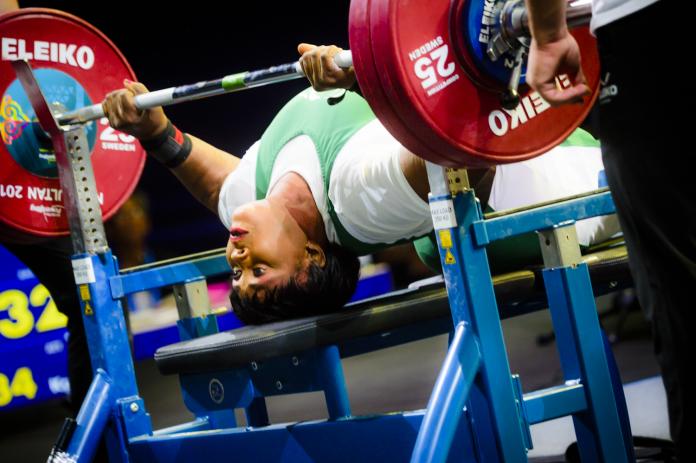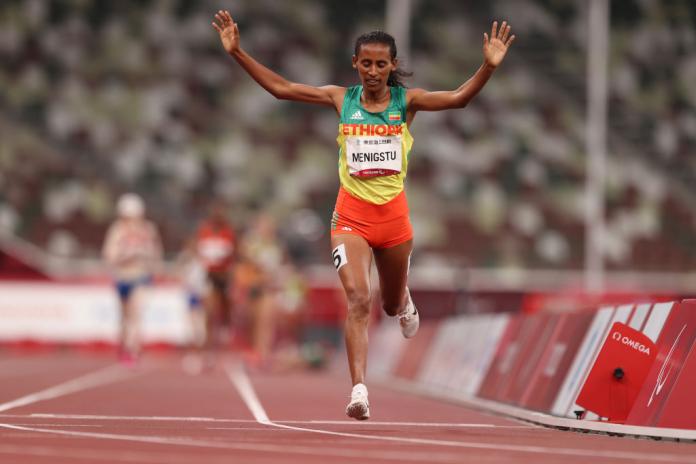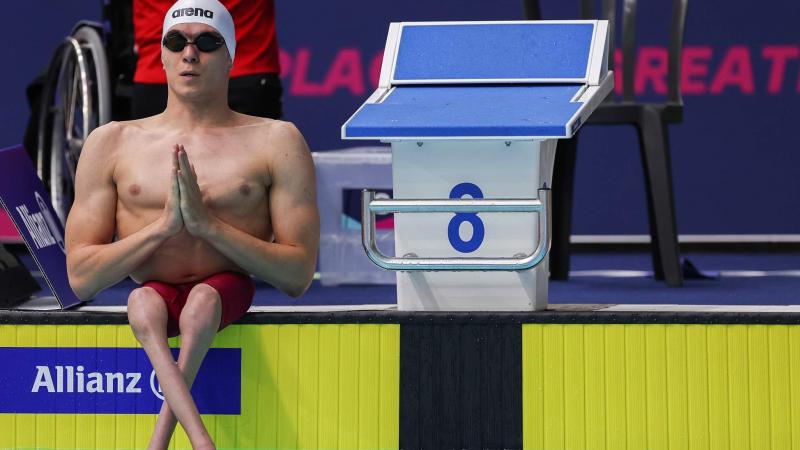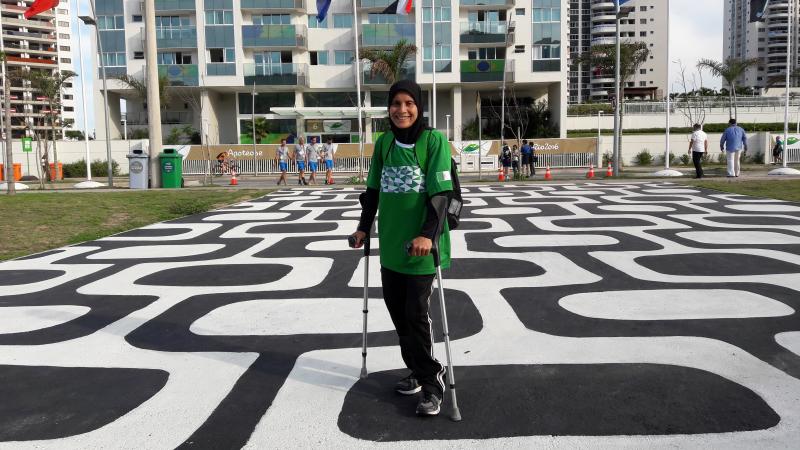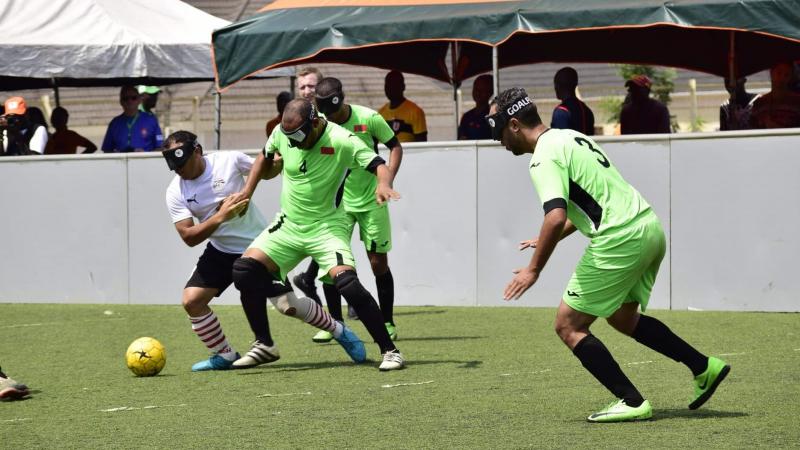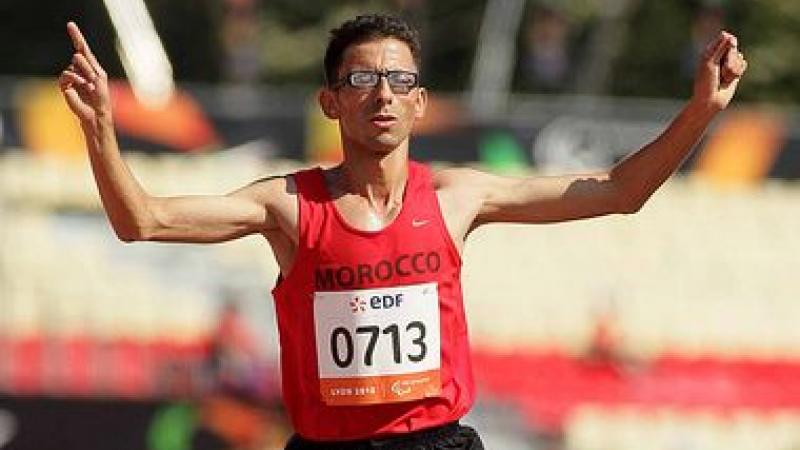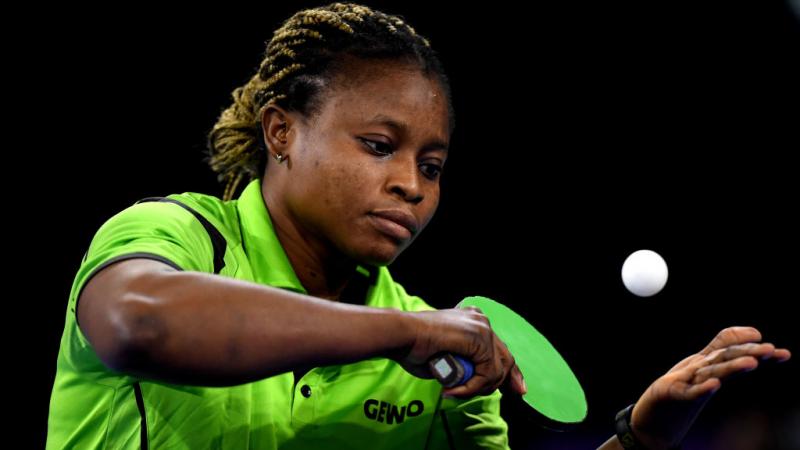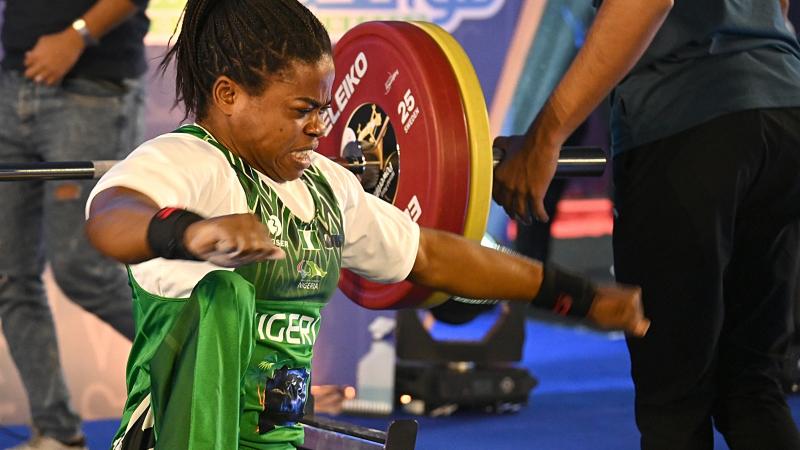African nations fully focused on Paris 2024 after past successes
From history makers to power houses, the race is on to have milestone breaking performances 23 Jan 2024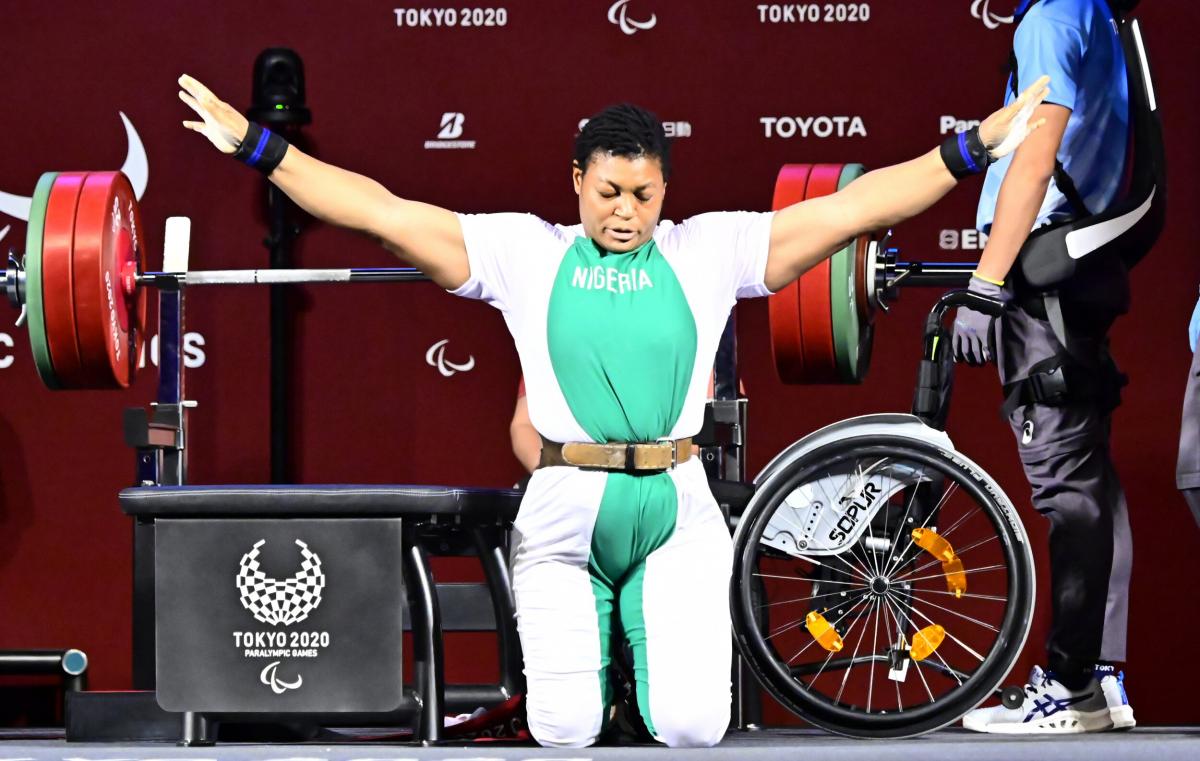
Africa’s trailblazers head to Paris 2024 Paralympic Games this year hoping to break down more barriers, win more medals, and spread the word to every corner of this vast continent.
Undoubtedly, Para sport continues to provide a beacon of hope and optimism thanks to those athletes who have gone before.
At Tokyo 2020 the countries which make up Africa won a total of 63 medals, including 21 gold. Four years earlier, at Rio 2016, the total was 97 (36 gold). The reason was obvious – COVID-19 interrupted long-term planning.
While there might not been as many medals collected in Japan as in Brazil, there were still promising signs of things to come in terms of African participation and there is reason to be even more optimistic with Paris 2024 just around the corner.
From strength to strength
Algeria, Tunisia, Morocco, Nigeria and South Africa could be regarded as the African heavyweights and all five populated the medals table in Japan with four gold medals each.
Morocco’s 30th placing in the medal table was their highest ever thanks to golden quartet Abdeslam Hili (men’s 400m T2), Zakariae Derhem (shot F33), Ayoub Sadri (400m T47), and El Amin Chentouf (marathon T12).
Tunisia could boast that Tlili Raoua emerged as the most successful African female athlete with two gold medals and world records in women’s F41 shot put and discus.
Also, her countryman Walid Ktila raced to two gold medals in the men's 100m T34 and men's 800m T34.
Double delight
“People do come to me and ask about how to get into Para sports. They know me and there are kids who want to emulate me which is a good sign,” Ktila said.
“Awareness is a key for change and every time I win a medal, or my teammates, we get heard. It’s an opportunity and I would like to keep doing that again and again.”
There was another African double gold-medallist in South Africa’s Ntando Mahlangu, who won the 200m T61 and the long jump T63 setting a world record of 7.17m.
Anrune Weyers also took gold in the 400m T45 and the other South Africa win came from cyclist Pieter du Preez in the H1 time trial.
Power and glory
It is impossible to mention powerlifting without adding Nigeria into the mix. At Rio 2016, they were the highest-finishing African team thanks to their eight gold medals, two silver and two bronze taking them to 17th overall. Six of those gold medals came in powerlifting.
At Tokyo 2020 they managed the 33rd spot in the medals table with four gold, one silver, and five bronze. Rest assured they will be hoping to beat that in Paris.
Folashade Oluwafemiayo took the women’s up to 86kg gold medal and beat her own world record twice, with 152kg. Bose Omolayo won the women’s under 79kg gold medal.
Tokyo 2020 African nations medal table
- 28th, Algeria: 4 gold, 4 silver, 4 bronze = 12
- 29th, Tunisia: 4 gold, 5 silver, 2 bronze = 11 total
- 30th, Morocco: 4 gold, 4 silver, 3 bronze = 11
- 33rd, Nigeria: 4 gold, 1 silver, 5 bronze = 10
- 34th, South Africa: 4 gold, 1 silver, 2 bronze = 7
- 59th, Ethiopia: 1 gold = 1
- 64th, Egypt: 5 silver, 2 bronze = 7
- 71st, Namibia: 1 silver, 1 bronze = 2
- 78th, Kenya: 1 bronze = 1
- 78th, Uganda: 1 bronze = 1
History makers
Nevertheless, other African nations that are still laying the foundations for the years to come also showed why they can expect growth and more success in Paris.
Ethiopia's 21-year-old Tigist Gezahagn Mengistu made history in Tokyo by winning the women's 1500m T13 – the NPC’s first Paralympic gold medal.
Uganda’s Husnah Kukundakwe was the youngest athlete at Tokyo 2020, aged 14. The swimmer, who has a limb disability, competed in the women’s SB8 100m breaststroke.
She hopes that people will see her on TV – Uganda has access to the Paralympic Games broadcasts – and change the perception of disabled people. According to her, those with disabilities sometimes end up on the streets abandoned and shunned.
“Maybe if they (parents) watch the Paralympics, when they are watching they will realise that the choice they made is really bad and they should have supported their children to achieve their dreams,” said Kukundakwe.
Flying solo
Malawi’s Taonere Banda, a visually-impaired middle-distance runner, was back at Tokyo having been the first and only Paralympian from Malawi four years earlier.
Her coach, Agnes Jamali, has spoken about the impact Banda has made as a role model at home. She also mentioned school education programmes like I’mPOSSIBLE.
Unlike Uganda, only 12 per cent of the population of Malawi can access TV, so Taonere visits communities and persuades parents to send their disabled children to mainstream schools.
Noel Mwango, Malawi’s Ministry of Education Director of Special Needs Education, is supporting the initiative.
“I am telling the whole nation that when we say it is possible, they should really take it seriously. Those kids that have disabilities should not be kept in the houses but go to school.”
Feeling the power
Ghana’s Emmanuel Oku, whose left leg was amputated after being accidently shot while working as a palace guard, was a powerlifter in the men’s 72kg category at Tokyo 2020.
He was inspired to become a Para athlete after watching the Rio 2016 powerlifters and hopes that the sight of him carrying the flag at the Opening Ceremony in Tokyo will have done the same to his countrymen and women.
“Being on TV [at Tokyo 2020] was amazing and lots of people know me in Ghana now, they will shout that they saw me on the news. They respect me for what I do, and that is great. We have some good new athletes coming through, from all over the country,” Oku said to IPC.
Ghana have also just hosted the first African Para Games, in 2023. More than 500 athletes from South Africa, Angola, Morocco, Egypt, Algeria, Zambia, Rwanda, Kenya, and Sierra Leone were present.
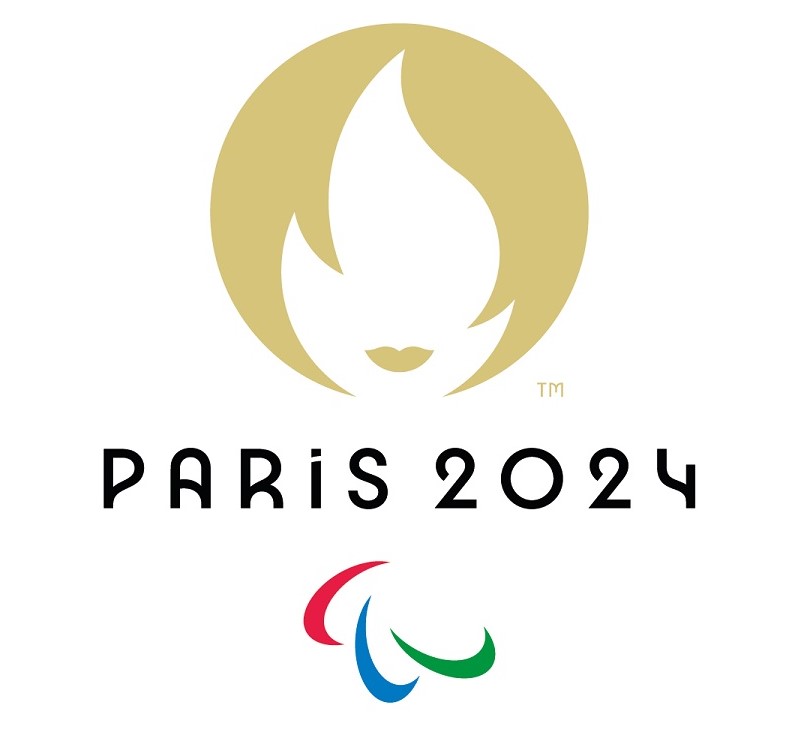
 Facebook
Facebook
 Instagram
Instagram
 Twitter
Twitter
 Youtube
Youtube
 TikTok
TikTok
 Newsletter Subscribe
Newsletter Subscribe





